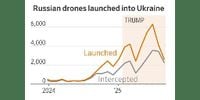US President Donald Trump has dramatically shifted his approach to Russia’s war in Ukraine, signaling a new willingness to impose sweeping sanctions on Russian oil—if, and only if, all NATO allies fall in line. The move, announced on Saturday, September 13, 2025, via Trump’s Truth Social platform, comes at a pivotal moment as Russia intensifies its military campaign and divisions deepen among Western nations over how to respond.
“Ready to do major Sanctions on Russia when all NATO Nations have agreed, and started, to do the same thing, and when all NATO Nations STOP BUYING OIL FROM RUSSIA,” Trump wrote, emphasizing that unity among NATO members is crucial for any new sanctions to have teeth. According to Invezz, Trump’s statement arrives as frustration mounts over Russia’s relentless escalation in Ukraine and the uneven efforts among European allies to curb Moscow’s energy revenues.
While many European countries have already slashed or halted their Russian oil imports, others—including Hungary—have dug in their heels. Hungary’s government, led by Viktor Orban, a close Trump ally, maintains a long-term contract with Russia’s Gazprom PJSC to import 4.5 billion cubic meters of gas annually through 2036, with additional purchases since 2022. This dependence has slowed broader European Union attempts to target Russia’s energy sector more aggressively, leaving the alliance struggling to present a united front.
Trump’s tough talk comes against the backdrop of a rapidly worsening conflict. According to Dow Jones & Company, Russia has significantly escalated its strikes on Ukraine since Trump took office, broadening its targets to include more civilian buildings. The surge in attacks, enabled by Moscow’s ramped-up munitions production, underscores President Vladimir Putin’s determination to achieve his objectives by force.
Recent days have seen some of the most intense violence since the start of the war. On Wednesday, September 10, 2025, Russia launched its largest aerial assault since the 2022 invasion, firing more than 800 drones and missiles at Ukrainian cities. The barrage set Ukraine’s Cabinet of Ministers building ablaze and killed more than 20 civilians in the Donbas region as they waited for pension payments, as reported by Nexstar Media. In Kyiv, a key government building was damaged, and Poland reported that its airspace was violated by drones amid the overnight strikes—a move Warsaw condemned as an act of aggression. The Russian Defense Ministry denied any intent to attack Polish territory, claiming its targets were military-industrial facilities in Kyiv.
In response to these developments, bipartisan voices in the US Senate have called for immediate action. Republican Senator Thom Tillis and Democratic Senator Jeanne Shaheen issued a joint statement demanding swift passage of sanctions legislation against Russia, condemning Putin as a "liar and a murderer" who "never wanted peace." They criticized recent US cuts to security cooperation programs like Section 333, which supports NATO’s eastern flank, warning that such reductions come at the worst possible time. "At the very moment Putin escalates, the United States appears to be cutting back," they said. Senators Lindsey Graham and Richard Blumenthal have introduced a bill to impose heavy tariffs on countries buying Russian oil and gas—a measure that has garnered 85 cosponsors and could pass before Thanksgiving, though it remains stalled in the Senate Banking Committee.
Trump, for his part, has grown increasingly vocal about his dissatisfaction with Russia’s actions and the lack of progress at the negotiating table. In a Fox News interview on Friday, September 12, 2025, he warned that his patience with Putin is "running out fast," adding, "We're going to have to come down very, very strong. It's the only way." Trump outlined plans for "very tough sanctions on banks and related to oil and tariffs," noting that both Putin and Ukrainian President Volodymyr Zelensky have, at different times, been unwilling to negotiate. "It's amazing, when Putin wants to do it, Zelensky didn’t. When Zelensky wanted to do it, Putin didn’t. Now Zelensky wants to, and Putin is a question mark," Trump observed, highlighting the diplomatic impasse.
Trump also pointed to previous US efforts to pressure India, which has become one of Russia’s biggest oil customers. "India was their biggest customer. I put a 50% tariff on India because they're buying oil from Russia. That's not an easy thing to do. That's a big deal, and it causes a rift with India," he said, according to Tempo. The US is now preparing to urge its Group of Seven (G-7) allies to impose tariffs of up to 100% on China and India for continuing to purchase Russian oil, Bloomberg reported. Trump suggested these tariffs could be linked to ending the war, writing, "This, plus NATO, as a group, placing 50% to 100% TARIFFS ON CHINA, to be fully withdrawn after the WAR with Russia and Ukraine is ended, will also be of great help in ENDING this deadly, but RIDICULOUS, WAR."
However, such measures are not without risk. Any action targeting China could provoke retaliation from Beijing, complicating the already delicate US-China trade relationship. Trump himself has occasionally taken a softer stance toward China, seeking a summit with President Xi Jinping and pursuing trade negotiations. US Treasury Secretary Scott Bessent and Trade Representative Jamieson Greer are scheduled to meet Chinese officials in Madrid in the coming days, hoping to keep channels open even as tensions rise.
Despite his recent hardening stance, Trump has until now resisted introducing fresh sanctions on Russia, instead pursuing peace talks with Putin. His most recent summit with the Russian leader, held in Alaska, failed to yield any shift in Moscow’s military campaign, and subsequent efforts to arrange a three-way meeting with Zelensky did not materialize. The latest Russian airstrikes in Kyiv appear to have been a turning point, pushing Trump toward a more confrontational approach. "NATO’S commitment to WIN has been far less than 100%, and the purchase of Russian Oil, by some, has been shocking! It greatly weakens your negotiating position, and bargaining power, over Russia," Trump wrote on his social media platform.
As the US and its allies debate their next moves, the challenge remains whether NATO nations—divided by energy dependence, political interests, and public opinion—can forge a unified response. With bipartisan momentum building in Congress for tougher sanctions, and Trump’s rhetoric intensifying, the world is watching to see if words will translate into action that could alter the course of the conflict in Ukraine.
With the stakes higher than ever, the coming weeks may well determine whether Western unity can match the scale of Russia’s escalation—and whether economic pressure can succeed where diplomacy has so far failed.





